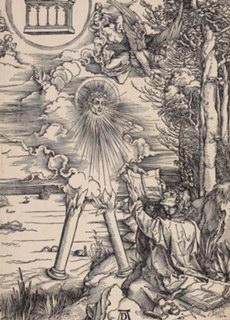Maybe the End of Time Is Really About All Times
Commentary by Jody Cramsie
What do the New Testament Book of Revelation, Northwest BachFest, Albrecht Dürer, Olivier Messiaen, and wine have in common?
They all came together on Feb. 25 at Barrister Winery when Zuill Bailey, Artistic Director of Northwest BachFest and three phenomenal musicians performed Messiaen’s Quartet for the End of Time.
Messiaen composed the Quartet while interned in the Nazi prisoner-of-war camp Stalag VIII in 1940-41. It was written for piano, cello, violin and clarinet, the only instruments available in the camp. Messiaen was able to write his Quartet with the kindness of a camp guard who procured paper and pencil for him.
The Quartet, performed by Messiaen and three other musician/POWs, premiered on Jan. 15, 1941, to an audience of inmates and guards in the camp.
Messiaen dedicated the piece “To the Angel who announces the End of Time” from Revelation 10:1-2, 5-7 (KJV):
And I saw another mighty angel come down from heaven, clothed with a cloud: and a rainbow was upon his head, and his face was as it were the sun, and his feet as pillars of fire: And he had in his hand a little book open: and he set his right foot upon the sea, and his left foot on the earth . . . And the angel which I saw stand upon the sea and upon the earth lifted up his hand to heaven, And sware by him that liveth for ever and ever . . . that there should be time no longer: But in the days of the voice of the seventh angel, when he shall begin to sound, the mystery of God should be finished . . .
Albrech Dürer, the German Renaissance artist, created a series of 15 woodcuts in 1498 entitled Apocalypse, based on Revelation. The most famous is probably the Four Horsemen, but the 9th woodcut illustrates the very angel that inspired Messiaen.
This convergence of music, history, visual art and religious text — the things of the spirit — has taken up residence in me. The recurring grand themes in human life are swirling around my mind.
Rather than attempt to connect all of the dots, I created a written “collage” of sorts, hoping you will make whatever connections arise for you.
- The word revelation comes from the Greek word apocalypse, meaning to uncover or reveal. The modern usage of apocalypse as a cataclysmic cosmic event is quite recent. (See, Moscow-Pullman Daily News; Opinion, Pete Haug, March 2020)
- The Catholic Study Bible, Second Edition, (1990, 2006) (CSB) states unequivocally that “the fundamental error is to take Revelation as a literal set of predictions.” . . . To do so is to “reduce the value to that of an astrological chart.”
- The CSB goes on to state that the literary genre dictates the meaning — apocalyptic is literature of the oppressed, it’s resistance literature — and “apocalyptic defends God’s justice in this world.” Revelation’s religious message to the faithful is to hold on and stand fast and maintain hope of vindication in the face of chaos and evil in this world.
- The evil in Revelation, symbolized by the Beast, the harlot or the idolatrous State, was the Roman Empire, the pre-eminent domination system of that time. (John was imprisoned on Patmos by Rome.)
- Dürer’s art often expresses the turmoil of his time: culture clashes, plagues, religious upheaval and a sense of doom with the approaching year 1500. (The World of Dürer, Time-Life Library of Art, 1967)
- The times of 1931-1945 were often thought of as apocalyptic — in the newer sense of the world coming to a cataclysmic end — and yet the meaningful existential revelations about our inhumanity, as well as compassionate humanity, were just as important for that time and our own time.
- Messiaen’s Quartet is part of a legacy of oppressed people rising above their horrific circumstances to resist the evil in their midst and proclaim their hope in humanity. Think: Victor Frankl; the children’s artwork and poetry from Terezin concentration camp; Elie Wiesel; Dietrich Bonhoeffer; Anne Frank . . . the list of heros over the millennia goes on.
The soaring majesty of the music on Feb. 25 is in the past. By its nature, music is ephemeral. But with the magic of audio and video recording, this masterpiece Quartet for the End of Time can be heard and savored over and over.
If you listen to this profound music, you will undoubtedly make your own connections. You may even allow your mind to engage with the timeless values — the universal struggle against evil with endurance and hope — that were surely present for Messiaen during the days and time of his composition. And that hold us captive still in our own time.








